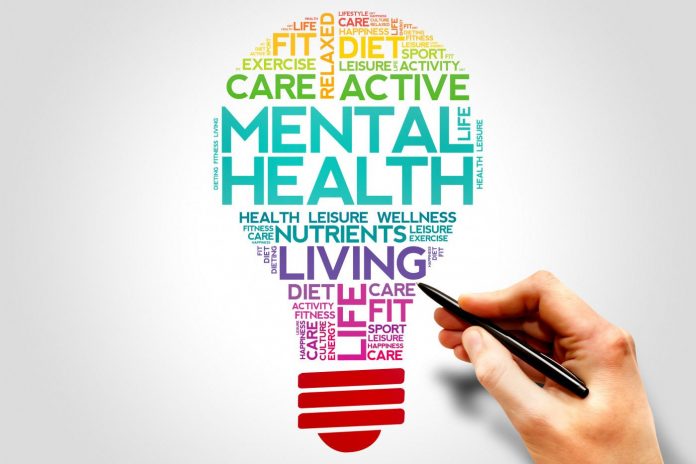This article is written by Pranav Wadhawankar, from School of Law, Sandip University, Nashik.
Table of Contents
Introduction
Mental health is an integral part of health and is more than the absence of mental illnesses. Mental Health needs to be discussed in India. Mental Health is a pervasive problem in India (1). There has been a remarkable surge in the mental illness in India where there endures a lack of recognition of it. While there are many reasons for this, one such is insufficiency in the lack of awareness about the importance of psychologists and therapies. According to a survey by the Indian Council of Medical Research (ICMR) that claimed that 7.5% of the total country’s population is hit by mental illness (2). Because of the recent pandemic that has taken over the world which resulted in lockdowns there was a rapid growth in the numbers arising because of fear of Job Loss, Anxiety & Domestic Violence, Panic Attacks, raising the number to 20% (3). This would account at least one in seven Indians suffering from the mental illness.
A 2019 research by a British foundation, Mental Health Research UK, discovered that 42.5 percent of the employees in India’s corporate sector struggle from depression or an anxiety disorder – almost every second employee. In India 35 per cent of India’s population is amongst the ages of 15 and 34 years and unfortunately, suicide was the foremost cause of deaths amid young people – aged 15 to 39 – in 2016, according to Lancet Global Health Study (5).
The World Health Organization evaluated “In India, the economic damage, due to mental health conditions, within 2012-2030, is 1.03 trillions of 2010 dollars”(6). The National Mental Health Programme saw a reduced allocation from Rs 50 crore the previous year to Rs 40 crore for 2019-20 against the entire healthcare budget amounting Rs 61,398 crore.
The Mental Healthcare Act (MHCA) passed by the government in 2017 was seen as an appreciated step in the area of catering to the millions of Indians wanting help. It looks to guard, advance and fulfil the rights of persons with mental illness and establish the onus on the state to grant affordable mental healthcare to its citizens.
The Mental Healthcare Act, 2017 abolishes the existing Mental Healthcare Act, 1987 which had been extensively criticized for not acknowledging the rights of a mentally ill person and flooring the way for isolating such dangerous patients & contained many such drawbacks as mentioned below:
- Limited the definition of “mental illness to “mental disorder”.
- No attention to WHO guidelines.
- Much stress is laid on licensing the authorities.
Stages of the Act
The Mental Health Care Bill, 2013 was introduced in the Rajya Sabha by Gulam Nabi Azad – 19 August 2013.
|
Introduction of the Bill |
19 August 2013 |
|
Date passed by the conference committee |
20 November 2013 |
|
Enacted & Passed by Rajya Sabha |
30 March 2017 |
|
Enacted & Passed by Lok Sabha |
27 March 2017 |
|
The Act commenced on |
7 July 2018 |
How is mental illness defined under this Act?
The term “Mental illness” in this act is defined in Act in Section 2 which consists of Definitions.
According to this act mental illness indicates a substantial disorder of thinking, mood, perception, orientation or thought that grossly damages judgment, behaviour, capacity to recognise reality or ability to meet the usual requirements of life, mental conditions associated with the degradation of alcohol and drugs, but does not constitute mental barrier which is a condition of arrested or inadequate development of mind of a person, particularly characterised by subnormality of knowledge.
Mental illness shall be defined in the same style as nationwide or overseas held medical criteria. Additionally, mental illness cannot be decided by a person’s political, economic or social status, association in cultural society, racial or religious group, or non-conformity with a community’s moral, social, cultural, work or political interpretations and religious opinions.
The MHA 2017 provides a wide & elaborative definition of “mental illness” which was lacked by the previous act 1987.

List of chapters
The Mental Health Care Act 2017 is split into 16 chapters which are further elaborated as below.
Chapter I
- It comprises the definitions & terms that are asserted in the Act.
- Mental Illness gets a brand new & elaborative definition.
- It involves post-graduate Ayush doctors as Mental Health Professionals.
Chapter II
- This chapter covers mental illness and the capacity to make mental health care and treatment decisions without any prejudice.
- How mental health should be determined.
- Capacity to make mental health care and treatment decisions.
Chapter III
- This chapter deals with the Advance directives.
- Manner of making Advance Directives & maintaining it & its power, review & liability allocated to it.
Chapter IV
- It lies down the guidelines of determining a nominated representative.
- Appointment & Revocation of NR & his Duties.
Chapter V
It consists of Various Rights that are conferred to a mentally ill person.
- Section 18 – Right to access mental healthcare.
- Section 19 – Right to community living.
- Section 20 – Right to protection from cruel, inhuman and degrading treatment.
- Section 21 – Right to equality and non-discrimination.
- Section 22 – Right to information.
- Section 23 – Right to confidentiality.
- Section 24 – Restriction on the release of information in respect of Right to access medical records.
- Section 25 – Right to personal contacts and communication.
- Section 26 – Right to legal aid.
Chapter VI
- It gives direction to the government to execute the programme.
- It also promotes mental health & preventive programs.
Chapter VII
- Gives provisions for creating the Central Mental Health Authority.
- Includes Establishment, Composition & Duties of CMHA.
Chapter VIII
- Gives provisions of creating the State Mental Health Authority.
- Cover Establishment, Composition & Duties of SMHA.
Chapter IX
- It comprises finance, accounts and audit.
- Accounts, Audits & Annual Reports by Central & State Authority.
Chapter X
- This includes Mental Health Care establishments.
Chapter XI
- Development of Mental Health Review Boards.
- Registration, Audit, Inspection & Inquiry of mental health.
Chapter XII
- Admission, treatment and discharge of mentally ill.
Chapter XIII
- This Chapter guarantees guidelines in terms of Duties of police officers concerning a mentally ill person.
Chapter XIV
- It restricts unauthorized duty and medication.
Chapter XV
- It deals with penalty and punishment.
Chapter XVI
- This chapter talks about the Power of the Central Government to issue regulations.
Major provisions
1) New definition of mental illness
Earlier, Mental illness was defined as any mental disorder and seldom as mental retardation but the new act provides a broader definition which is stated below:
2) Various rights for persons with mental illness
- Every person has a right to obtain mental health care and its treatment from mental health services run or financed by the appropriate government.
- Right to live with dignity is provided for every person with mental illness.
- No discrimination of any basis including gender, sex, religion, culture, sexual orientation, caste, social, class, disability and political beliefs should be done against mentally ill people.
- Rights of confidentiality as for mental health, treatment, mental health care, and physical health care to mentally ill people.
- Forbid the usage of the release of a photograph or any such matter related to a mentally ill person in the media without the acquiescence of the person.
- Right of picking the person who would be answerable for making decisions with the view to the treatment, his admission into a hospital, etc.
- Persons with mental illness will also have the right to protection from barbaric and demeaning treatment.
- Free treatment is provided for the person with mental illness if they are homeless & fall in Below Poverty Line, even if they don’t own a BPL card.
3) Advance directive
A person with mental illness shall have the right to make an advance directive that states how he/she wants to be treated for the illness and who his/her nominated representative shall be. The advance directive should be certified by a medical practitioner or registered with the Mental Health Board.
4) Mental health authority
The Bill provides power to the government to set-up the Central Mental Health Authority at national-level and State Mental Health Authority in each State.
Every mental health practitioner and mental health institute including nurses, clinical psychologists, also psychiatric social workers will be compelled to be registered with this Authority.
These bodies command to:
- register, supervise and manage a register of mental health professionals & establishments,
- generate quality and service provision norms for such establishments,
- train law enforcement administrators and mental health experts on the outlines of the Act,
- receive complaints about deficiencies in the provision of services, and
- advise the government upon matters representing mental health.
5) Mental health treatment
The Bill also specifies the process and procedure to be followed for admission, treatment and discharge of mentally-ill individuals.
A medical practitioner or a mental health professional shall not be held liable for any unforeseen outcomes on following a valid advance directive.
6) Decriminalization of suicide
As provided in Section 115;
- Notwithstanding anything contained in Section 309 of the Indian Penal Code any person who attempts to commit suicide shall be presumed, unless proved otherwise, to have severe stress and shall not be tried and punished under the said code.
- The Appropriate Government shall have a duty to provide care, treatment and rehabilitation to a person, having severe stress and who attempted to commit suicide, to reduce the risk of recurrence of attempt to commit suicide”.
This is a milestone judgement which annulled Section 309 IPC which stated that ‘Any person attempting to perform suicide shall be punished with simple imprisonment which may prolong to one year.
7) Abolishment the barbarous treatments
- It also affirms that a person with mental illness shall not be subjected to electroconvulsive therapy (ECT) therapy without the application of muscle relaxants and anaesthesia.
- Electro-convulsive therapy for minors is prohibited.
- Chaining in any manner or method whatsoever is banned.
Criticisms of the Act
The Act does not provide for the advance directive to minors, as per Section 5 of the said Act. All the services are to be ensured by both Central and State governments. The expenditures estimated will not meet the obligations under the bill. The Centre and State, both have responsibilities as per the Act; it does not provide sharing of funds between them. All the States have different financial conditions; the Central government has to assure funds for meeting the legal obligations. If a person no longer demands an order of supported admission to the Mental Health establishment, the Act provides that they may continue to remain in the mental health establishment as an independent patient and does not clarify for how long and what procedure is to be adopted to give the person an effective chance to live in the community. Discussions should be started with the Central and state governments to recognise the lack of resources and ensure their availability with proper budgeting to perform the provisions of the MHCB. The MHCA does propose some timelines, but detailed and precise response plans are required to prepare the system before the action is executed. Emphasis should be laid on training for skill development. In the chapter, I of the Act – ‘mental health professional’ is limited to clinical psychiatrists and specialists containing a postgraduate degree in Ayurveda, Homeopathy, Siddha, and Unani. Despite the main worry is psychotherapists and psychoanalysts are omitted from the act as the current definition. Although the law to punish the person committing suicide has been prohibited, a lot still needs to be done for the mentally ill people.
For instance:
- The state must complete post-operative care to the individual and root them to a new environment.
- If an individual has attempted suicide due to socio-economic reasons, then the state should give financial considerations to resolve the problem.
- Psychological support and care should be given to the individual. The state can seek assistance from NGOs as well as religious missionaries for this design.
Conclusion
The Mental Healthcare Act of 2017 looks alien in nature but impractical in scope. There is no doubt that in the scope the act is a big leap from its predecessor 1987 Act. However the present healthcare system seems to be incompetent and we suffer from lack of infrastructure and specialists in the field, resultant of this causes the degraded quality of living and healthcare of the mentally ill. The Act has taken a standard shift of rendering “mental healthcare” essentially as “justiciable rights.”
The new act has set outcome principles that mental health professionals will embrace and embed in practice. The decriminalization of attempt to suicide is one of the major highlights of the act, along with the concept of Advance Directive and ban on all those treatment procedures that gave these mentally ill person nightmares, also trying to fix the system of institutions by engaging them and making sure they work at standards which are prescribed by the authorities in the act. Breaching its stated policies of equality, the act ends up discriminating against the mentally ill. There is a lack of comprehensive rules and regulations to include all the settings. The resolve to implement the principles holding the act appears weak, given the delay of ring‐fenced resources beyond inflationary arrangements. However, more promotive programs & campaigns should be promoted on mental health. The government should press more on allocating more funds in Mental Health Organisations.
References
1) National mental health survey of India 2015–2016 Murthy R S – Indian J psychiatry. (2017, January) Indian Journal of Psychiatry: Free full-text articles from Indian J Psychiatry. https://www.indianjpsychiatry.org/article.asp?issn=0019-5545;year=2017;volume=59;issue=1;spage=21;epage=26;aulast=Murthy
2) Birla, Neerja. “Mental Health in India: 7.5% of Country Affected; Less than 4,000 Experts Available.” The Economic Times, Economic Times, 10 Oct. 2019, economictimes.indiatimes.com/magazines/panache/mental-health-in-india-7-5-of-country-affected-less-than-4000-experts-available/articleshow/71500130.cms?from=mkj
3) Loival, Manogya. “20% Increase in Patients with Mental Illness since Coronavirus Outbreak: Survey.” India Today, 31 Mar. 2020, www.indiatoday.in/India/story/20-per-cent-increase-in-patients-with-mental-illness-since-coronavirus-outbreak-survey-1661584-2020-03-31.
4) Assocham India. (n.d.). Assocham India:: Oldest, Leading, largest and Apex Chamber of Commerce and Industry of India. https://www.assocham.org/newsdetail.php?id=4918
5) “Gender Differentials and State Variations in Suicide Deaths in India: The Global Burden of Disease Study 1990–2016.” The Lancet Public Health, 11 Sept. 2018, www.thelancet.com/journals/lanpub/article/PIIS2468-2667(18)30138-5/fulltext?fbclid=IwAR0tpajs4v5Bh3WOmnelbJ3aWJHrZLw-4bvJEnW_-Qj2toHn83d7edUUCfE.
6) Mental health in India. (n.d.). South-East Asia regional office. https://origin.searo.who.int/india/topics/mental_health/about_mentalhealth/en/
7) “IPC 309.” India Kanoon, indiankanoon.org/doc/1501595. Accessed 11 July 2020.
8) “Definitions”. India Code, https://www.indiacode.nic.in/show-data?actid=AC_CEN_12_13_00024_201710_1517807327874§ionId=6208§ionno=2&orderno=2
LawSikho has created a telegram group for exchanging legal knowledge, referrals and various opportunities. You can click on this link and join:











